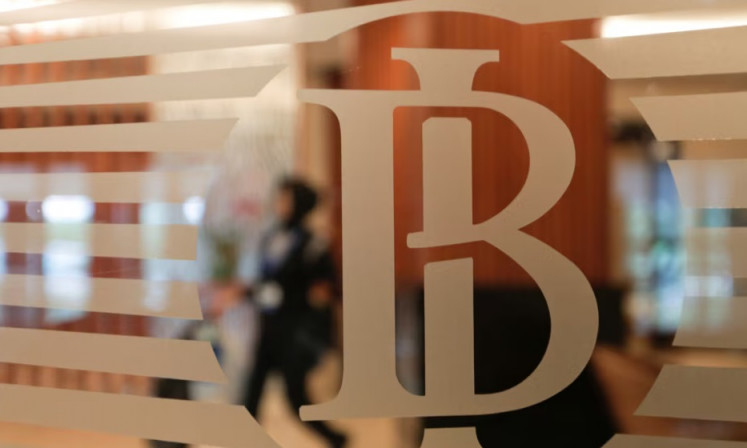Popular Reads
Top Results
Can't find what you're looking for?
View all search resultsPopular Reads
Top Results
Can't find what you're looking for?
View all search resultsUN to grill RI on rising rights abuses
The government is expected to have a hard time defending its human rights record in front of the UN Human Rights Council’s (UNHRC) upcoming Universal Periodic Review (UPR) after a group of civil society organizations submitted a condemnatory report to the UN
Change text size
Gift Premium Articles
to Anyone
T
he government is expected to have a hard time defending its human rights record in front of the UN Human Rights Council’s (UNHRC) upcoming Universal Periodic Review (UPR) after a group of civil society organizations submitted a condemnatory report to the UN.
The group, consisting of human rights organizations such as the Human Rights Working Group (HRWG) and the Institute for Criminal Justice Reform (ICJR), submitted last week 15 reports, which detailed the government’s failure to protect human rights.
The UPR is the first international human rights mechanism to address all countries and all human rights by periodically examining the human rights performance of all 193 UN member states every four-and-a-half years.
It is a compulsory mechanism for any UN member, regardless of its size or influence.
The UPR working group is expected to use the submitted report from the civil society groups as a reference for when Indonesia’s human rights record will be reviewed in its third session, to be held in Geneva in May 2017. “The first report is a general report that highlights human rights violation cases in Indonesia,” HRWG executive director Muhammad Hafiz said.
In general, the government has done a poor job in protecting human rights as it only followed up 20 percent of the UPR’s recommendations, made after Indonesia was last reviewed in 2012, he said.
Indonesia received 180 recommendations, of which 144 were accepted by the government and the remaining 36 recommendations are set to be reviewed for further consideration.
There were some recommendations that were fully implemented, such as ratifying international conventions on migrant workers and on disabled people, Hafiz said.
Other recommendations, meanwhile, were only partially implemented, such as revising the bill on religious harmony, which was undertaken by the Religious Affairs Ministry in 2014, only for the revision process to get bogged down, he added.
Another recommendation that was not followed up was related to the issue of abuse of the freedoms of expression and religion, a problem that has been escalating in recent years.
A religious freedom watchdog, the Wahid Institute, recorded 190 violations of freedom of religion and faith in 2015, a 23 percent increase from 154 cases in 2014. The violations were mostly in the form of sealing places of worship and the prohibition of their construction, as well as obstructing celebrations or the performance of rituals of certain faiths.
Abuse of freedom of religion also comes in the form of discriminatory bylaws, as there are 57 bylaws across the country that discriminate against certain religious groups and could endanger the country’s pluralism, according to data from rights group Setara Institute.
With the government failing to implement most of the UPR’s recommendations as well as recent developments on human rights violation cases, such as the government’s decision to expedite the execution of death row convicts, Indonesia will have an even more difficult time answering questions from the UPR, ICJR executive director Supriyadi Widodo Eddyono said.
“There must have been a lot of critical questions for Indonesia, such as the use of the death penalty and makar [treason] in Papua,” he told The Jakarta Post.
Supriyadi was referring to the Indonesian authorities’ decision to use articles 106 and 110 of the Criminal Code to criminalize dozens of peaceful Papuan pro-independence political activists over the last decade.
During the 71st session of the UN General Assembly in New York, Pacific countries expressed their deep concern over continuing human rights violations in West Papua and called on the UN to take concrete measures to address the matter and urged the Indonesian government to solve the problems.
The statements were strongly rejected by Indonesia’s delegation, saying that the criticism was politically motivated and designed to draw attention away from problems in their own countries.
Nara Masista Rakhmatia, an official at Indonesia’s permanent mission to the UN, accused the countries of interfering in Indonesia’s national sovereignty.
“Their politically motivated statements were designed to support separatist groups in the said provinces, who have consistently engaged in inciting public disorder and in conducting armed terrorist attacks,” she said.










